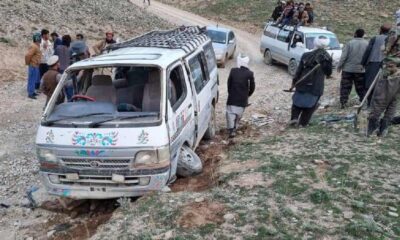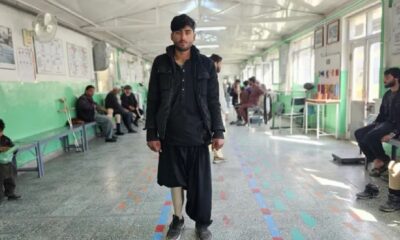Health
WHO calls emergency meeting as monkeypox cases top 100 in Europe

The World Health Organization was holding an emergency meeting on Friday to discuss the recent outbreak of monkeypox, a viral infection more common to west and central Africa, after over 100 cases were confirmed or suspected in Europe.
In what Germany described as the largest outbreak in Europe ever, cases have been reported in at least nine countries – Belgium, France, Germany, Italy, the Netherlands, Portugal, Spain, Sweden and the United Kingdom – as well as the United States, Canada and Australia.
Spain reported 24 new cases on Friday, mainly in the Madrid region where the regional government closed a sauna linked to the majority of infections.
A hospital in Israel was treating a man in his 30s who is displaying symptoms consistent with the disease after recently arriving from Western Europe.
First identified in monkeys, the disease typically spreads through close contact and has rarely spread outside Africa, so this series of cases has triggered concern.
However, scientists do not expect the outbreak to evolve into a pandemic like COVID-19, given the virus does not spread as easily as SARS-COV-2.
Monkeypox is usually a mild viral illness, characterised by symptoms of fever as well as a distinctive bumpy rash.
“This is the largest and most widespread outbreak of monkeypox ever seen in Europe,” said Germany’s armed forces’ medical service, which detected its first case in the country on Friday.
The World Health Organisation (WHO) committee meeting to discuss the issue is the Strategic and Technical Advisory Group on Infectious Hazards with Pandemic and Epidemic Potential (STAG-IH), which advises on infection risks that could pose a global health threat.
It would not be responsible for deciding whether the outbreak should be declared a public health emergency of international concern, WHO’s highest form of alert, which is currently applied to the COVID-19 pandemic.
“There appears to be a low risk to the general public at this time,” a senior U.S. administration official said.
COMMUNITY SPREAD
Fabian Leendertz, from the Robert Koch Institute, described the outbreak as an epidemic.
“However, it is very unlikely that this epidemic will last long. The cases can be well isolated via contact tracing and there are also drugs and effective vaccines that can be used if necessary,” he said.
Still, the WHO’s European chief said he was concerned that infections could accelerate in the region as people gather for parties and festivals over the summer months.
There is no specific vaccine for monkeypox, but data shows that the vaccines used to eradicate smallpox are up to 85% effective against monkeypox, according to the WHO.
British authorities said they have offered a smallpox vaccine to some healthcare workers and others who may have been exposed to monkeypox.
Since 1970, monkeypox cases have been reported in 11 African countries. Nigeria has had a large ongoing outbreak since 2017. So far this year, there have been 46 suspected cases, of which 15 have since been confirmed, according to the WHO.
The first European case was confirmed on May 7 in an individual who returned to England from Nigeria.
Since then, over 100 cases have been confirmed outside Africa, according to a tracker by a University of Oxford academic.
Many of the cases are not linked to travel to the continent. As a result, the cause of this outbreak is unclear, although health authorities have said that there is potentially some degree of community spread.
SEXUAL HEALTH CLINICS
The WHO said the early cases were unusual for three reasons: All but one have no relevant travel history to areas where monkeypox is endemic; most are being detected through sexual health services and among men who have sex with men, and the wide geographic spread across Europe and beyond suggests that transmission may have been going on for some time.
In Britain, where 20 cases have been now confirmed, the UK Health Security Agency said the recent cases in the country were predominantly among men who self-identified as gay, bisexual or men who have sex with men.
Portugal detected nine more cases on Friday, taking its total to 23.
The previous tally of 14 cases were all detected in sexual health clinics and were men aged between 20 and 40 years old who self-identified as gay, bisexual or men who have sex with men.
It was too early to say if the illness has morphed into a sexually transmitted disease, said Alessio D’Amato, health commissioner of the Lazio region in Italy. Three cases have been reported so far in the country.
“The idea that there’s some sort of sexual transmission in this, I think, is a little bit of a stretch,” said Stuart Neil, professor of virology at Kings College London.
Scientists are sequencing the virus from different cases to see if they are linked, the WHO has said. The agency is expected to provide an update soon.
Health
Global organizations warn of health crisis due to aid cuts in Afghanistan

Global organizations are raising alarms about the impact of aid cuts on Afghanistan’s health sector and the reduction in funding for humanitarian organizations operating in the country.
UN-affiliated bodies have stated that the complete suspension of aid from the United States and the reduction of the 2025 budget could lead to the closure or suspension of nearly 2,000 healthcare centers across Afghanistan.
The United Nations Office for the Coordination of Humanitarian Affairs (OCHA) has further warned that if only 25 percent of the required funding is provided, 7 million out of the 9.3 million people in need of medical services will be left without access to healthcare.
The report highlights that without immediate and sufficient funding, child mortality rates could rise sharply, as malnutrition remains one of the leading causes of death for children under the age of five.
The World Food Programme (WFP) has also warned that Afghanistan is facing a severe malnutrition crisis among children, with the number of malnourished children expected to reach 3.5 million by 2025.
Recent reports from the WFP reveal that 8 out of 10 families in Afghanistan are unable to afford a sufficient diet, and 3 out of 4 families are being forced to borrow money to purchase basic food items.
UN agencies have stressed the urgent need for the international community to address the humanitarian crisis in Afghanistan and provide the necessary aid.
This comes after Afghanistan’s Ministry of Economy dismissed reports from some international organizations about the growing poverty in the country, labeling them as exaggerated and far from reality.
Health
Health minister meets with Qatari envoy over building of 400-bed hospital in Kandahar

The Ministry of Public Health has announced that Noor Jalal Jalali, the acting public health minister, met with Murdif Al-Qashouti, the Chargé d’Affaires of the Qatari Embassy in Kabul, to discuss the construction of a planned 400-bed hospital by Qatar, the provision of equipment for hospitals, and the enhancement of the capacity of health workers in Kandahar province.
According to a statement, the Acting Minister of Public Health emphasized the importance of improving the capacity of health workers and equipping hospitals with standard facilities to better address patients’ needs and provide essential health services. He considers Qatar’s cooperation to be crucial.
In this meeting, Al-Qashouti assured the IEA of Qatar’s commitment to supporting various health sectors in Afghanistan.
In November 2023, the Ministry of Public Health had announced that Qatar planned to build a 400-bed hospital in Kandahar. In September 2023, reports also emerged about Qatar Charity’s commitment to constructing this hospital.
However, Qatar has not yet started the actual construction of the hospital.
International organizations have repeatedly warned that attention must be given to Afghanistan’s health system, as the country cannot effectively manage patients and combat infectious diseases such as polio and tuberculosis without the support of global organizations.
Health
Majority of WHO-supported facilities in Afghanistan risk shutdown by June
As of 4 March 2025, 167 health facilities had shut down due to funding shortages, cutting off lifesaving medical care to 1.6 million people
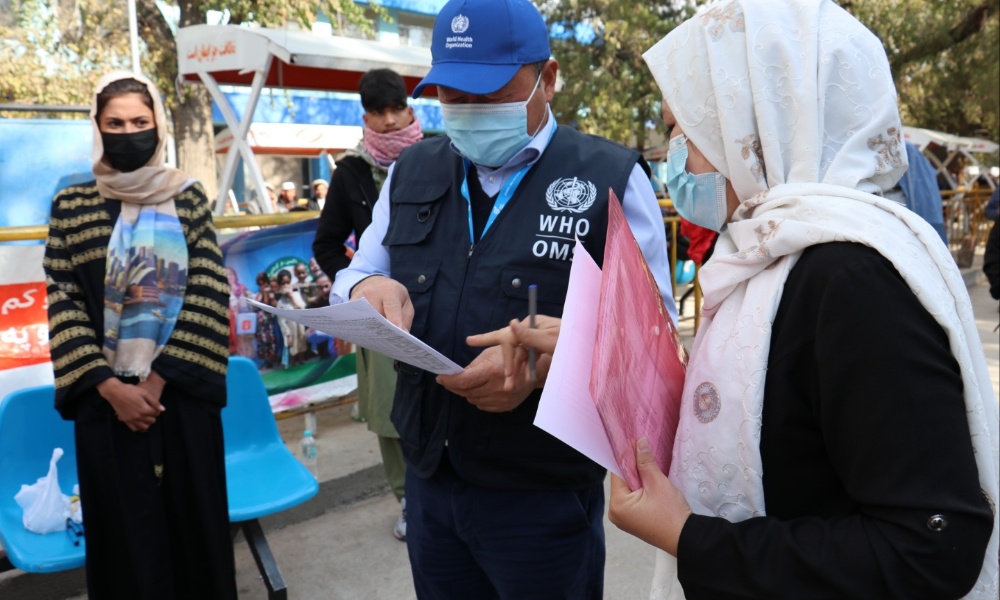
The World Health Organization (WHO) in Afghanistan is deeply concerned that funding shortages could force the closure of 80 percent of WHO-supported essential health care services across the country.
Millions of people, including vulnerable populations such as women, children, the elderly, the displaced and returnees, will be left without access to critical medical care, the organization said in a statement.
As of 4 March 2025, 167 health facilities had shut down due to funding shortages, cutting off lifesaving medical care to 1.6 million people across 25 provinces.
WHO warned that without urgent intervention, another 220 facilities could close by June 2025, leaving an additional 1.8 million Afghans without access to primary health care.
In the worst affected regions – Northern, Western and Northeastern Afghanistan – more than a third of health care centres have shut down, raising alarms about an imminent humanitarian crisis.
“These closures are not just numbers on a report, they represent mothers unable to give birth safely, children missing lifesaving vaccinations, entire communities left without protection from deadly disease outbreaks,” said WHO Representative and Head of Mission in Afghanistan Dr Edwin Ceniza Salvador.
“The consequences will be measured in lives lost.”
Afghanistan is already battling multiple health emergencies, including outbreaks of measles, malaria, dengue, polio and Crimean-Congo haemorrhagic fever.
Without functioning health facilities, efforts to control these diseases are severely hindered. Over 16 000 suspected measles cases, including 111 deaths, were reported in the first two months of 2025. With immunization rates at critically low levels (only 51% for the first dose of the measles vaccine and 37% for the second), children are at heightened risk of preventable illness and death.
While some donors continue to support Afghanistan’s health sector, funding has been significantly reduced as development aid priorities have shifted. The needs, however, remain immense, and current support is not enough to sustain critical health care services for millions of Afghans, WHO stated.
“This is not just about funding. It is a humanitarian emergency that threatens to undo years of progress in strengthening Afghanistan’s health system,” said Salvador.
“Every day that passes without our collective support brings more suffering, more preventable deaths and lasting damage to the country’s health care infrastructure.”
-

 World5 days ago
World5 days agoMyanmar quake death toll hits 1,700 as aid scramble intensifies
-
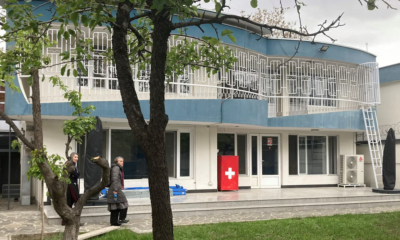
 Latest News4 days ago
Latest News4 days agoSwitzerland re-establishes presence in Kabul with humanitarian office
-
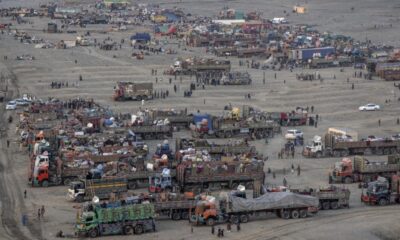
 Latest News4 days ago
Latest News4 days agoPakistan plans to expel 3 million Afghan refugees this year
-

 World4 days ago
World4 days agoSouth Korea, China, Japan seek regional trade amid Trump tariffs
-

 Regional4 days ago
Regional4 days agoIran’s Khamenei warns of ‘strong’ response if US attacks
-

 Latest News3 days ago
Latest News3 days agoAfghanistan’s reconstruction is in the interest of EU: Uzbek president
-

 Latest News3 days ago
Latest News3 days agoUS won’t rest until all Americans detained in Afghanistan brought home: Rubio
-

 Latest News3 days ago
Latest News3 days agoBulgaria brings five people to trial over deaths of 18 Afghan migrants




